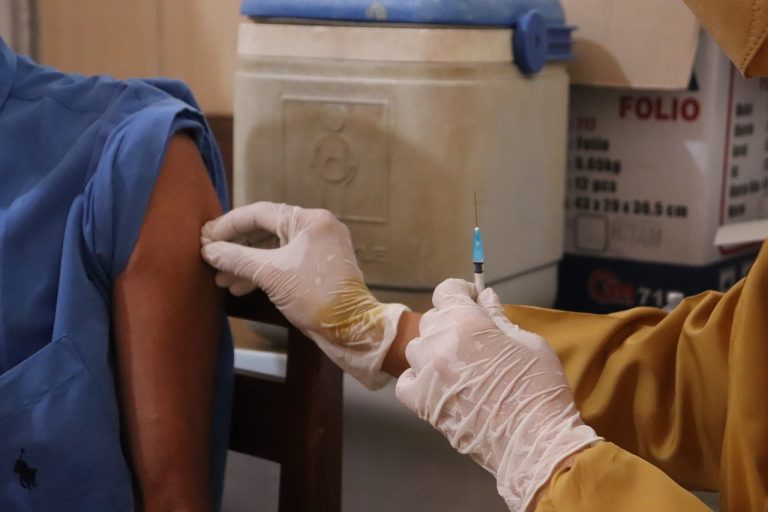A recent preprint study by U.S. researchers, published on Sept 8. in medRxiv, revealed that healthy boys without underlying health conditions were more at risk of suffering from a cardiac adverse event (CAE) after mRNA COVID-19 vaccination than to end up hospitalized from COVID-19 within 120 days.
The U.S. has vaccinated over 100 million adults and is now considering a push to vaccinate children between 12 and 17 years of age. However, the inoculation of adolescents is highly controversial, with many parents concerned about the side effects and unknown long-term effects COVID-19 vaccines.
“At times of low adolescent COVID-19 hospitalization rates, such as in June 2021, a CAE from the second dose of an mRNA vaccine in a healthy 12–15-year-old boy was 13.7-fold more likely, at 162.2 per million, than the 120-day risk of COVID-19 hospitalization. The rate of post-vaccination CAE for boys 12-15 years without comorbidities (162.2/million) receiving their second vaccination dose exceeds their current 120-day COVID-19 hospitalization risk (44.4/million) by 3.7 times,” the study states.
Similarly, “In 16–17-year-old boys without comorbidities, the risk of post-dose two vaccination CAE exceeds their current 120-day hospitalization risk by 2.1 times (94.0/million vs. 44.4/million per 120-days).”
Even in times of high hospitalization rates for adolescents, the authors state, “Our estimated risk of post-second vaccination dose CAE hospitalization for boys 12-15 without medical comorbidities (141/million; based on 86.9% hospitalization rate) also exceeds that of their 120-day COVID-19 hospitalization risk even at high hospitalization rates (Figures 6 and 7).”
Success
You are now signed up for our newsletter
Success
Check your email to complete sign up
The heart side effects usually occurred soon after vaccination. The authors reported, “The CAE cases in our investigation occurred a median of 2 days following vaccination, and 91.9% occurred within 5 days.”
A team of researchers led by Dr. Tracy Hoeg at the University of California searched the Vaccine Adverse Event Reporting System (VAERS) database between Jan. 1 and June 18, 2021 for adverse effects in children aged 12 to 17 who had received an mRNA COVID vaccine.
“They were able to identify a total of 257 cardiac adverse events (CAE) using inclusion criteria that met the Centers for Disease Control and Prevention (CDC) working case definition of myocarditis,” according to Children’s Health Defense.
After two jabs of the Pfizer vaccine, the team estimated the rate of myocarditis to be 162.2 cases per million in healthy boys aged between 12-15, and 94 cases per million for those aged between 16-17. “Approximately 86% of these resulted in hospitalization for both age groups,” the study stated. For girls, the corresponding rates were 13.4 and 13 cases per million, respectively.
The team added that based on current U.S. infection rates, the chance of an otherwise healthy adolescent being hospitalized with COVID-19 is about 44 per million over a 4-month period.
“Further research into the severity and long-term sequelae of postvaccination CAE is warranted. Quantification of the benefits of the second vaccination dose and vaccination in addition to natural immunity in this demographic may be indicated to minimize harm,” the researchers said.
“It’s important to note, it’s the CDC’s estimates of myocarditis in boys & young men that have been the outliers. Israel & Canada reporting similar rates of post-vax myo to the 1/6,000 from our study,” Dr. Hoeg said in a tweet.
UK takes cautious approach
Saul Faust, professor of pediatric immunology and infectious diseases at the University of Southampton, said that the careful approach by the Joint Committee on Vaccines and Immunisation (JCVI) regarding vaccinating children and adolescents was justified given the research results.
Inoculation of healthy 12 to 15-year-olds was not recommended by the JCVI. However, the matter was referred to the UK’s chief medical officers, and the decision to start vaccinating all 12-15-year olds with a single shot of the Pfizer-BioNTech vaccine was made this week.
Professor Adam Finn, a member of JCVI at the University of Bristol, said: “I stand by the JCVI advice, which is not to go ahead at this time with vaccinating healthy 12 to 15-year-olds on health outcome risk-benefit grounds given the current uncertainty – as there is a small but plausible risk that rare harms could turn out to outweigh modest benefits.”
















